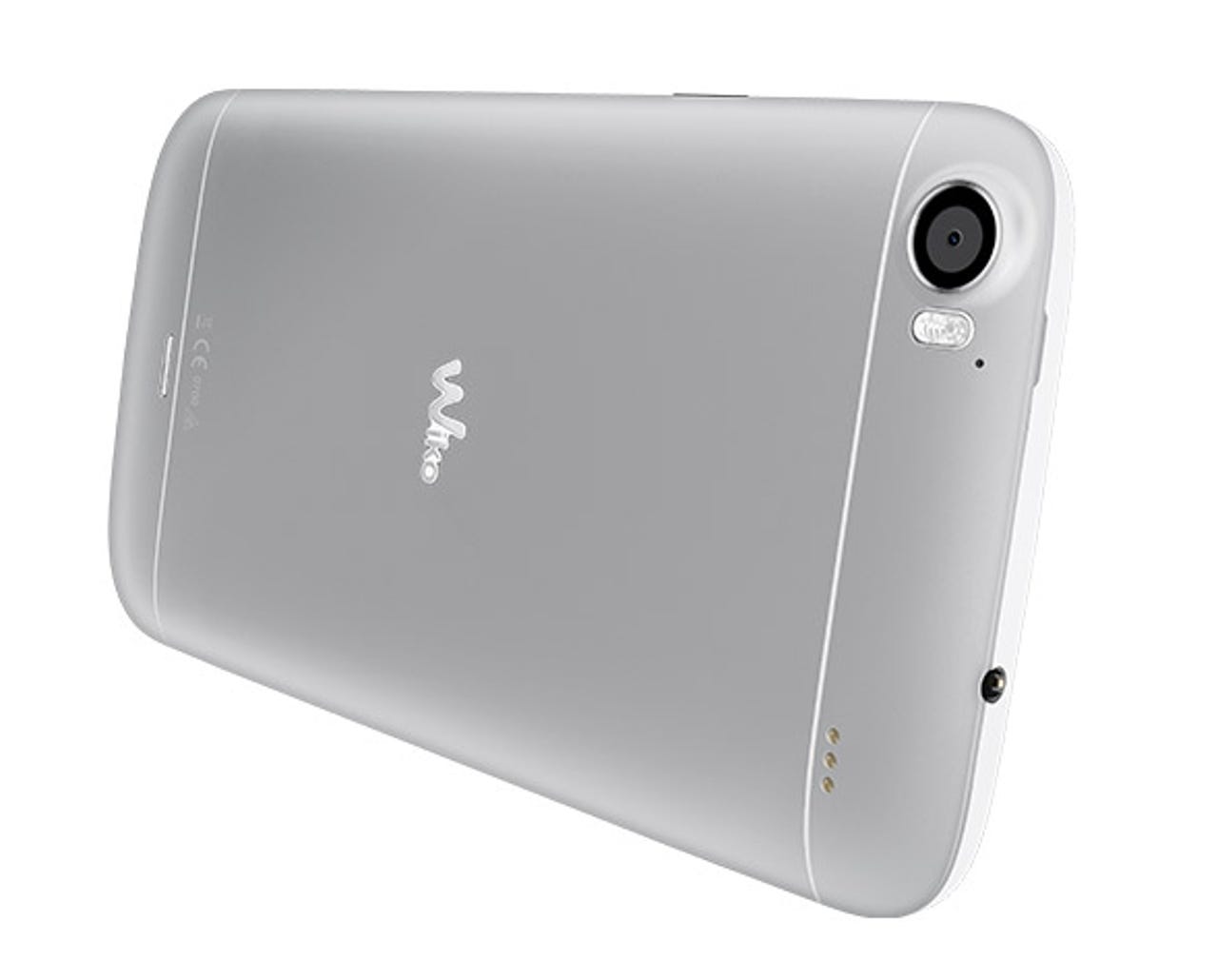Wiko: Meet the Chinese smartphone maker with a French twist that's set to conquer Europe


Wiko Mobile has been something on a phenomenon in France. Launched in 2011 in the city of Marseille, the company now claims to be the second-largest online smartphone vendor in France, with 14.2 percent market share as of this May.
According to estimates by CCS Insight, the company sold 1.7 million smartphones in the country in 2013, accounting for eight percent of the market. Wiko itself claims last year's sales reached two million handsets, based on GfK research figures.
Wiko's 'French touch' is regarded as an important factor behind the company's success in the country, where buying 'made in France' has become a clarion call of president Francois Hollande's government.
However, George Jijiashvili, research analyst at CCS Insight, points out that Wiko employs just 65 people in Marseille, and only four members of the workforce are actually engineers.
That's because Wiko is in fact almost completely Chinese. To be accurate, Jijiashvili said it is widely reported that a Shenzhen-based company called Tinno Mobile Technology owns 95 percent of the company and is responsible for most design and production functions.
Far from being 'made in France', Wiko smartphones are actually made in China. The French team focuses on tasks such as localisation and marketing, Jijiashvili said.
Wiko is gaining something of a reputation for being shy about speaking about its Chinese associations, if reports about the company are anything to go by. As yet, requests for confirmation about when Tinno acquired its stake, and if 95 percent is accurate, were not answered.
A spokeswoman for the company noted that Wiko has a strong partnership with Tinno, which has its own production chain. "That allows us to control the production, delivery and quality and that allows us to be very flexible and responsive," she said.
Tech Pro Research
As a majority-owned Chinese company, Wiko is certainly one of a number of companies that plan to offer an alternative to the usual Apple iPhones and Samsung Galaxy flagships, with a focus on good specs and customer service at low prices. Alcatel OneTouch is owned by China-based TCL, for example, while Huawei, Lenovo, ZTE, and Xiaomi are all muscling in on the market.
Indeed, latest global smartphone figures from IDC show that Chinese smartphone manufacturers are now a force to be reckoned with. "As the death of the feature phone approaches more rapidly than before, it is the Chinese vendors that are ready to usher emerging market consumers into smartphones," said IDC senior research manager Melissa Chau.
IDC noted that among the top vendors in the market, a wide range of Chinese OEMs more than outpaced the market in the second quarter of 2014.
In France, Wiko has been popular because of the perception that the smartphones are French but, of course, that's not the only reason for the company's success so far. Jijiashvili said Wiko's USPs include its low prices, the high spec of its hardware, chic design and even the quality of its packaging.
Good customer service is another key factor that drives customer loyalty. The company has also specialised in dual-SIM phones and uses the popular Android operating system, now found on around three-quarters of smartphones worldwide.
Wiko has not taken the usual route to market, however. Jijiashvili pointed out that the company does not spend money on big advertising campaigns nor align itself with operators, but instead relies on social media and word of mouth.
As the company's spokeswoman candidly admitted, Wiko went all out to court "bloggers and geeks" when it launched its first Android smartphone in 2012 in order to penetrate the "closed market" of the established smartphone players. The company used these 'geeks' to generate and spread interest in the company's smartphones, and found the strategy to be pretty effective.
The company is also very ambitious. It has already launched its first LTE smartphone called Wiko Wax as well as a handset based on an octa-core processor. It has a phablet called Slide, but has no plans yet to launch a full-fat tablet because of the level of competition in this segment.
Now it intends to replicate its success in France elsewhere, with plans to launch in the UK this autumn. Apart from France, the company is already present, or plans to start operations soon, in Indonesia, Spain, Portugal, Italy, Germany, Switzerland, Belgium, UK, Algeria, and Morocco.
"We want to become an international player," Wiko's spokeswoman said. "Our goal is not to select each country according to the sales potential, but to find the good local expert and spread the Wiko strategy to match with the market."
Nonetheless, Jijiashvili is not convinced that the Wiko way will be easy to implement elsewhere. He noted that Wiko perhaps had little choice about its decision to remain independent of operators, because the carriers have not been too enthusiastic about signing up yet another small and relatively unknown Chinese smartphone manufacturer.
In Jijiashvili's view, Wiko has done a really good job at convincing consumers in France that it really is a French company. Its focus on design and customer support has served it well, and people do tend to go back for more.
However, in countries such as the UK the smartphone market is very saturated and it will be "really tough" for Wiko to make its mark there, Jijiashvili said.
"In the end, it comes down to brand," he said. "It's going to be very difficult."
Wiko has begun to work with some operators and is "developing our brand across the world. We work and rely on local experts who know their mobile market. Then, combining Wiko's strategy and local skills, we adapt our offer and our message according to the market need," the spokeswoman said.
Meanwhile, IDC noted that total global smartphone shipments in the second quarter of 2014 reached a new quarterly record of 295.3 million, and set to surpass 300 million in the third quarter. While Samsung and Apple remain the market leaders, the example of Nokia shows that no vendor can ever afford to be complacent.
"If you miss an important technological step, it can be very difficult to come back and even more if you don't change your strategy," Wiko's spokeswoman said.